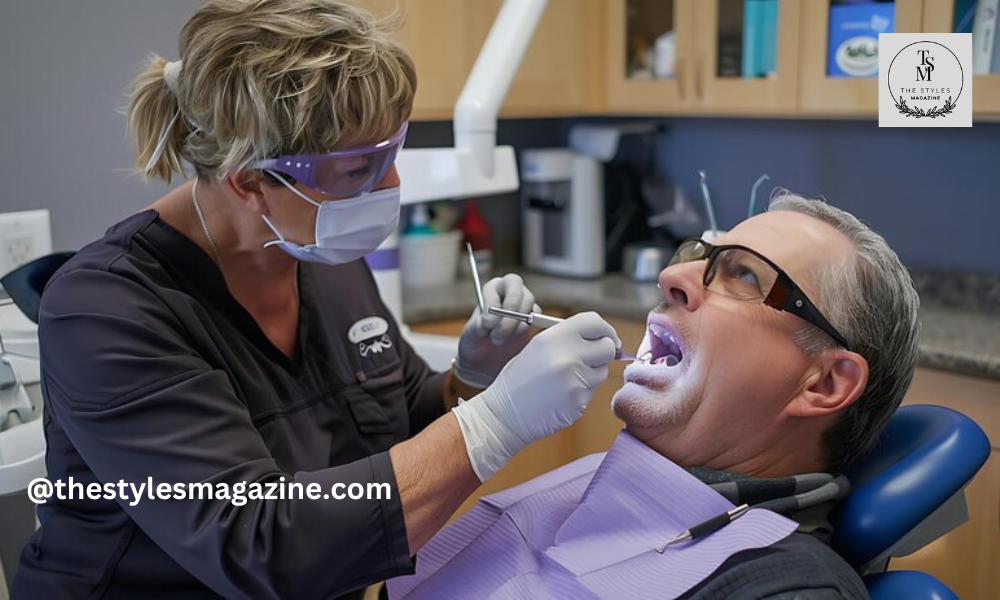Medications can have various side effects. One lesser known is dental decay. Several myths surround dental decay claims related to medications. Understanding these myths helps patients make informed decisions and protect their dental health. Here are some common myths about dental decay claims related to medications. Many myths are not based on facts. It is important to get accurate information.
Myth 1: Only Certain Medications Cause Dental Decay
Many people think that only a few specific medications cause dental decay. While some medications are more commonly linked with dental problems, a wide range of drugs can contribute. This includes both prescription and over-the-counter medications. Almost any drug could affect your dental health. Always check the side effects.
The truth is that any medication affecting saliva production, oral pH balance, or sugar levels can lead to dental decay. You must be aware of all medication side effects and discuss them with your dentist. Talking to a dentist about medication is crucial. They offer guidance on protecting teeth.
Myth 2: Dental Decay From Medications Is Rare
Another common myth is dental decay from medications is rare. In reality, many medications can lead to dry mouth, reduced saliva flow, and changes in oral bacteria. All contribute to dental decay. This issue is more prevalent than most realize. Medication-induced decay is more common than thought. Awareness is key to prevention.
Medications like antidepressants, antihistamines, and some pain relievers cause dry mouth. Without enough saliva to wash away food particles and neutralize acids, the risk of cavities and decay increases significantly. Dry mouth increases decay risk. Keep hydrated and clean your teeth regularly.
Myth 3: Suboxone Dental Decay Claims Are Unfounded
The misconception that Suboxone dental decay claims are unfounded. Suboxone, a medication for treating opioid addiction, is linked to dental decay due to its impact on saliva production. This claim is supported by many patient reports and studies. Suboxone can dry out the mouth. This dryness can lead to decay.
Patients taking Suboxone should be vigilant about their oral hygiene and regularly visit their dentist. Preventative measures like using fluoride toothpaste, drinking lots of water, and avoiding sugary foods help mitigate the risk of dental decay. Regular dental visits are essential. They help catch decay early.
Myth 4: Good Oral Hygiene Can Prevent All Medication-Related Decay
While good oral hygiene is crucial, it alone cannot prevent all medication-related dental decay. Some medications cause changes in the body that even the best oral hygiene practices cannot counteract entirely. It is essential to combine good oral hygiene with other preventative measures. Oral hygiene is important but not foolproof. Combine with other preventive steps.
Regular dental check-ups, professional cleanings, and discussions with your dentist about your medications help manage the risk. In some cases, the dentist might recommend additional treatments like fluoride treatments or special mouthwashes. Check-ups and cleanings are vital. Discuss everything with your dentist.
Myth 5: Only Long-Term Medication Use Affects Dental Health
Many people think only long-term medications affect dental health. However, short-term use of certain medications can lead to dental issues. The duration of medication use varies widely among individuals.
It’s crucial to monitor oral health. Report changes to your dentist, regardless of med duration. Early action can prevent worse dental issues later.
Myth 6: Dentists Cannot Help With Medication-Related Decay
Some believe dentists can’t help with med-related decay. They think it’s inevitable. This isn’t true. Dentists offer valuable advice and treatments.
Your dentist can suggest specific oral care products. They can prescribe treatments to boost saliva. And provide cleanings and fluoride treatments. They work with doctors to manage medical side effects.
Myth 7: Changing Medications Is The Only Solution
Another myth is that only changing medications prevents dental decay. While this might be necessary sometimes, it is not always the best solution, and changing medications can have big health impacts.
Instead, focus on preventive dental care. Work with your dentist and doctor. This approach helps maintain health and protect teeth.
Myth 8: Dental Decay Claims Are Hard to Prove
Some think dental decay claims from meds are hard to prove. Seeking treatment support seems futile. It’s challenging but not impossible. Proper records and collaboration with health providers strengthen claims.
Keep detailed records of medication use, dental visits, and healthcare chats. These will support your case. Your dentist and doctor can link dental issues to medications.
Conclusion
Understanding myths about dental decay from meds improves oral care. Recognize risks and work with your dentist and doctor. This prevents and manages dental decay well. Don’t let misconceptions stop you from seeking needed help. Stay informed, maintain good oral hygiene, and get professional advice. Protect your dental health while managing medical conditions.

